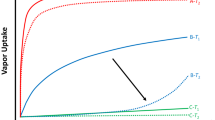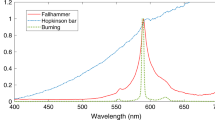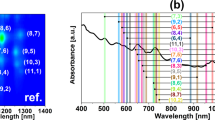Abstract
THE separation or purification of aromatic hydrocarbons with high melting points is generally carried out by recrystallization, sublimation or absorption chromatography. Purification by zone melting has also been used for substances available in quantity. Absorption chromatography using activated alumina has been used extensively for separating aromatic hydrocarbons. However, it has been found in this laboratory that some substances were difficult to separate by this technique and single bands taken from the column were found in many cases to contain traces of impurities. The detection and separation of these contaminants has been achieved by a simple micro-sublimation technique.
This is a preview of subscription content, access via your institution
Access options
Subscribe to this journal
Receive 51 print issues and online access
$199.00 per year
only $3.90 per issue
Buy this article
- Purchase on Springer Link
- Instant access to full article PDF
Prices may be subject to local taxes which are calculated during checkout
Similar content being viewed by others
References
Haussman, W., Anal. Chem., 26, 619 (1954).
Thomas, J. F., Sanborn, E. N., Maukai, M., and Tebbens, B. D., Anal. Chem., 30, 1954 (1958).
Author information
Authors and Affiliations
Rights and permissions
About this article
Cite this article
MELHUISH, W. A Fractional Micro-sublimation Technique. Nature 184, 1933–1934 (1959). https://doi.org/10.1038/1841933a0
Issue Date:
DOI: https://doi.org/10.1038/1841933a0
Comments
By submitting a comment you agree to abide by our Terms and Community Guidelines. If you find something abusive or that does not comply with our terms or guidelines please flag it as inappropriate.



